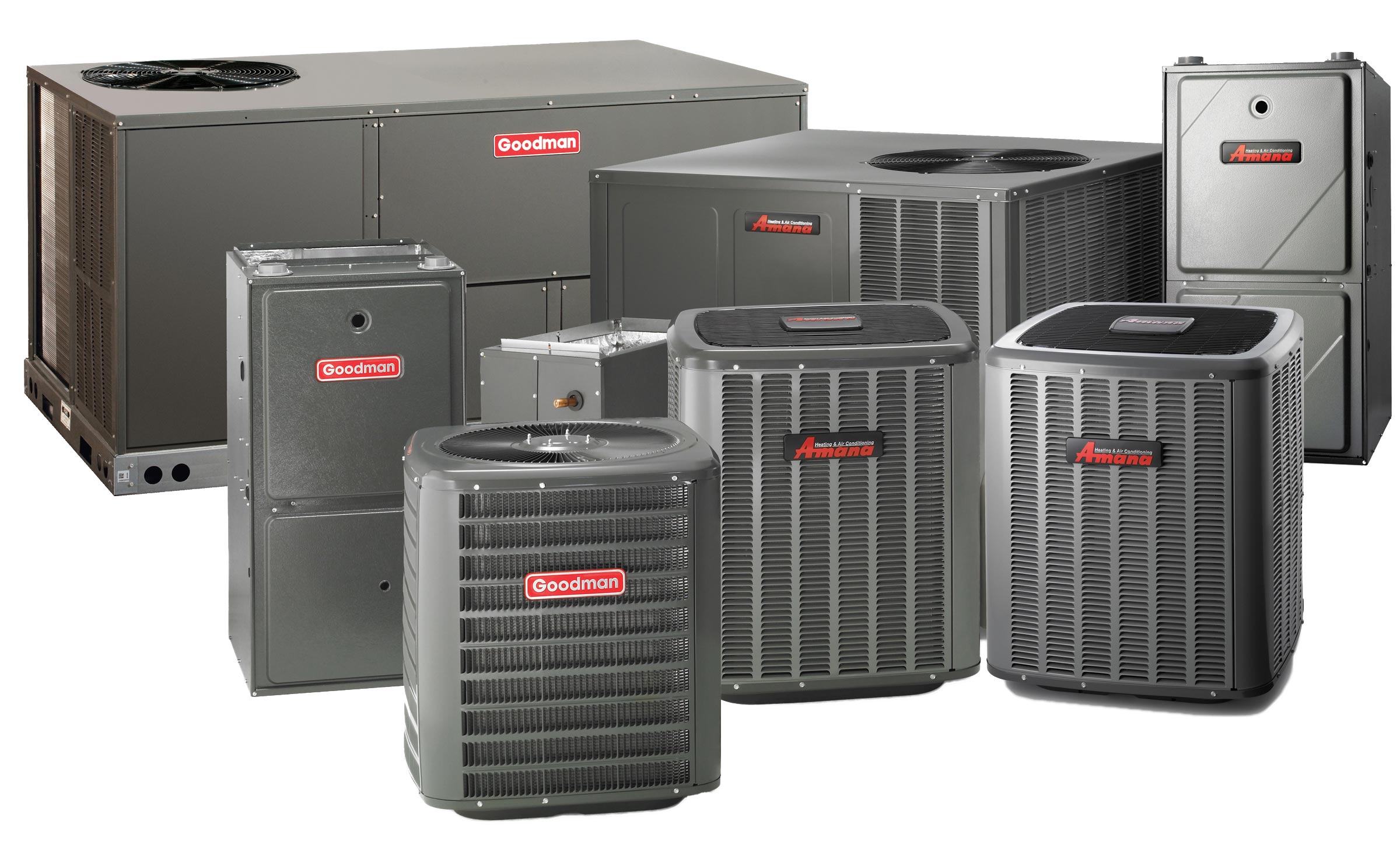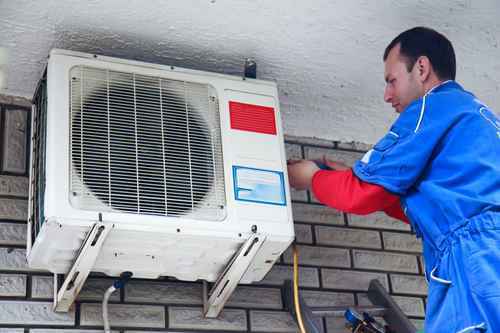Imagine your a/c as a master artist, adeptly sculpting away at the overbearing warmth in your house, leaving an awesome, comfortable sanctuary. Have you ever before questioned just how this modern marvel attains such a feat?
The elaborate dance of cooling agents, coils, compressors, and air ducts all work in harmony to produce that invigorating blast of chilly air. Yet how specifically do these parts come together to produce that much-needed respite from the sweltering warm?
Allow's uncover the inner workings of a/c and demystify the scientific research behind remaining cool.
Secret Takeaways
- Efficient Air conditionings use refrigerants to soak up and launch warmth, enhancing cooling and energy performance.
- Normal upkeep makes sure ideal performance, longevity, and power cost savings.
- Correct sizing and style avoid energy waste and guarantee also cooling distribution.
- Recognizing airflow dynamics and optimization enhances cooling performance and comfort degrees.
The Essentials of Cooling
Understanding the principles of air conditioning can significantly boost your expertise of how these systems operate effectively. Power efficiency is a vital element of cooling, as it not just impacts your electrical power bill however likewise the environment. air conditioner not working Effective a/c make use of less energy to cool down an area, making them cost-efficient and green. By purchasing an energy-efficient device, you can appreciate a comfy interior atmosphere while lowering your carbon footprint.
Humidity control is one more crucial feature of cooling. Ac system aid manage the moisture degrees in your home, developing an extra comfortable atmosphere. Excess moisture can bring about mold growth and discomfort, while low moisture levels can trigger dry skin and respiratory system problems. A well-kept air conditioning unit can properly regulate humidity, ensuring a healthy and enjoyable living atmosphere for you and your family.
Understanding exactly how a/c systems take care of power performance and moisture control can help you make educated decisions when selecting and using these systems in your house.
Understanding Cooling Agents and Their Duty
When it concerns air conditioning system, recognizing cooling agents and their function is very important. You'll learn more about the significance of cooling agents in cooling systems and how they assist in the warmth transfer process.
Additionally, taking into consideration the environmental effect of cooling agents is essential for sustainable cooling services.
Role of Refrigerants
Refrigerants play an important duty in the operation of ac unit by assisting in the transfer of heat. The performance of a refrigerant directly impacts the cooling process and power intake of the system.
When considering cooling agents, it's critical to evaluate their efficiency versus their ecological implications. Some refrigerants contribute to ozone exhaustion and international warming, motivating the search for greener alternatives. Sustainable measures focus on searching for cooling agent options that are energy-efficient and have very little environmental influence.
Makers are increasingly buying establishing brand-new refrigerants that straighten with sustainability goals. By focusing on refrigerant efficiency and discovering lasting alternatives, the a/c sector aims to lower its carbon impact and minimize ecological harm.
Environmental Impact Factors To Consider

Taking into consideration the ecological effect of cooling agents is essential in evaluating the sustainability of cooling systems. When assessing the ecological effects of air conditioning unit, two essential factors to think about are energy effectiveness criteria and carbon footprint analysis.
- Energy Performance Standards:
- Energy-efficient a/c unit eat less electrical power, decreasing overall power usage and ecological influence.
- Carbon Footprint Evaluation:
- Performing a carbon footprint analysis aids in understanding the quantity of greenhouse gas exhausts connected with a/c procedures.
- Refrigerant Selection:
- Choosing refrigerants with lower Worldwide Warming Possible (GWP) can especially decrease the ecological effect.
- Correct Disposal:
- Guaranteeing appropriate disposal of old refrigerants avoids them from hurting the setting.
- Routine Maintenance:
- Normal upkeep of a/c systems can improve performance, lowering power consumption and ecological effect.
The Refine of Warm Transfer
When your ac unit runs, it depends on a process of heat transfer to cool your space successfully. This system entails the absorption of warmth from the interior air and the exchange of thermal power to keep a comfortable temperature.
Comprehending this vital element assists you realize exactly how ac unit successfully regulate the climate in your house.
Warmth Absorption System
To efficiently cool the air in your room, air conditioning unit use a warm absorption system that effectively transfers warmth. This mechanism plays an essential function in preserving temperature level law and using advanced cooling innovation.
Right here's exactly how the warm absorption procedure functions:
- Refrigerant Flow: The cooling agent absorbs warmth from the interior air.
- Compression: The compressor increases the stress of the refrigerant, creating its temperature level to climb.
- Condensation: The warm, pressurized refrigerant releases warmth outside as it condenses right into a liquid.
- Growth Shutoff: This part lowers the cooling agent stress, creating it to cool down and evaporate.

- Dissipation: As the refrigerant vaporizes, it absorbs heat from the indoor air, beginning the cycle once more.
Thermal Energy Exchange
In the process of thermal energy exchange, warm transfer plays an essential duty in just how air conditioners function to cool down indoor areas properly. Thermal characteristics determine that heat always flows from a warmer location to a cooler one. Air conditioners utilize this concept by extracting warmth from interior air and launching it outside, making use of refrigerants to assist in the transfer.
Effective thermal power exchange is necessary for the energy efficiency of an a/c system. By enhancing warm transfer procedures, air conditioning unit can cool areas properly while decreasing power usage. Recognizing the dynamics of heat transfer is essential for designing and running a/c unit that supply the wanted level of comfort without unnecessary power wastefulness.
Evaporator Coils and Their Feature
Comprehending the feature of evaporator coils is vital to comprehending just how a/c successfully cool down interior areas. These coils play an essential function in the cooling process by taking in heat from the indoor air, which is then flowed back as awesome air.
Below are some key points concerning evaporator coils:
- Evaporator coil efficiency directly impacts the cooling performance of the air conditioning unit.
- These coils contain refrigerant that vaporizes as it takes in heat from the indoor air.
- As the cooling agent evaporates, it changes from a liquid state to a gas, cooling the air at the same time.
- The cooled air is then distributed throughout the room via the duct.
- Appropriate maintenance of the evaporator coils, such as routine cleaning, is essential to assure leading performance and energy performance.
Compressor and Condenser Workflow
Effectively cooling down indoor spaces includes comprehending how the compressor and condenser collaborate in an a/c system. The compressor plays a critical function in the cooling process by pressurizing the refrigerant gas, enhancing its temperature and power level. This high-energy gas then streams to the condenser, where it launches warmth to the surrounding setting, causing it to condense into a high-pressure liquid.
The condenser further cools this fluid with warm exchange with the outdoors air, converting it back right into a low-pressure gas. This process improves energy efficiency and improves the system's cooling power. Temperature law is achieved as the cooling agent cycles via these system parts, soaking up warmth inside your home and launching it outdoors.
Air Ducts and Air Circulation

To optimize air movement and guarantee consistent cooling throughout your room, appropriate installation and upkeep of duct are vital. Guaranteeing that your air ducts are developed successfully and in such a way that promotes suitable air flow dynamics is important for the general efficiency of your cooling system. Air flow techniques play a considerable duty in preserving interior comfort degrees, so it's important to focus on the following:
- Air duct Layout: Correctly developed air ducts aid make sure that trendy air gets to every corner of your space successfully.
- Airflow Characteristics: Understanding exactly how air steps via the ducts can aid you identify any kind of potential problems that might interrupt the air conditioning procedure.
- Regular Upkeep: Keeping your air ducts clean and without obstructions is vital for maintaining airflow and system performance.
- Sealing Leaks: Making sure that there are no leaks in your ductwork aids stop amazing air from escaping, improving power efficiency.
- Stabilizing Air flow: Correctly balancing the airflow in different rooms can assist maintain constant cooling throughout your office or home.
Regularly Asked Inquiries
Just how Does the Dimension of an Ac System Affect Its Performance and Cooling Ability?
When choosing an ac unit, keep in mind that dimension issues. An unit that's as well tiny might struggle to cool your room successfully, while an oversized one may waste power and not evaporate properly. Ensuring proper sizing factors to consider will certainly boost performance and cooling capacity.
The ideal size straight impacts efficiency, aiding you remain comfy without unneeded prices. So, when it involves a/c, bear in mind size for ideal performance and cooling power.
What Are Some Typical Maintenance Jobs That Can Assist Enhance the Life Expectancy of an Air Conditioning System?
Routine maintenance tasks can substantially extend the life of your a/c. Remember to change filters to ensure proper air flow and clean coils to boost cooling down effectiveness.
In addition, calibrate your thermostat for exact temperature level analyses and examine the refrigerant degrees for best performance.

Can Air Conditioners Be Utilized together with Various Other Cooling Approaches, Such as Followers or Dehumidifiers?
Yes, you can improve your cooling experience by incorporating your a/c unit with fans. This partnership can aid circulate cool air better, providing an extra comfortable setting and potentially conserving power.
Additionally, using a dehumidifier along with your ac unit can enhance cooling effectiveness by minimizing humidity degrees, making your room feel cooler.
Think about these alternatives to optimize your cooling arrangement and improve your total comfort throughout hot days.
Are There Any Kind Of Environmental Worries Associated With using Air Conditioners, and How Can They Be Mitigated?
When using air conditioning system, be mindful of environmental problems like power consumption and greenhouse gas emissions.
To minimize these concerns, take into consideration sustainable cooling techniques and environmentally friendly choices.
You can lower the influence of air conditioning unit by utilizing energy-efficient models, maintaining them consistently, and including various other cooling down strategies like followers or dehumidifiers.
What Advancements Are Being Made in Cooling Innovation to Make Units More Energy-Efficient and Environmentally Friendly?
To make air conditioning unit extra energy-efficient and green, improvements like wise technology and eco-friendly functions are being created. These technologies concentrate on enhancing power financial savings and reducing environmental influence.
By including smart innovation, air conditioning systems can enhance performance based on use patterns. Using environment-friendly materials and components likewise adds to making these devices a lot more lasting.
These developments aim to boost effectiveness while reducing the environmental impact of air conditioning innovation.
Final thought
So, now you know how air conditioners function!
From the refrigerants circulating through the system to the warm transfer procedure, each part plays an essential function in keeping you cool down.
The evaporator coils take in heat, the compressor and condenser launch it, and the duct distribute the amazing air throughout your room.
Following time you turn on your air conditioning, bear in mind the science behind it all! Keep cool!
